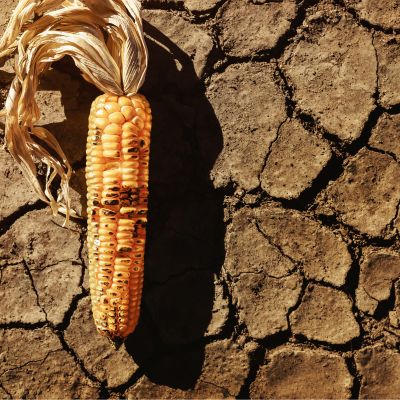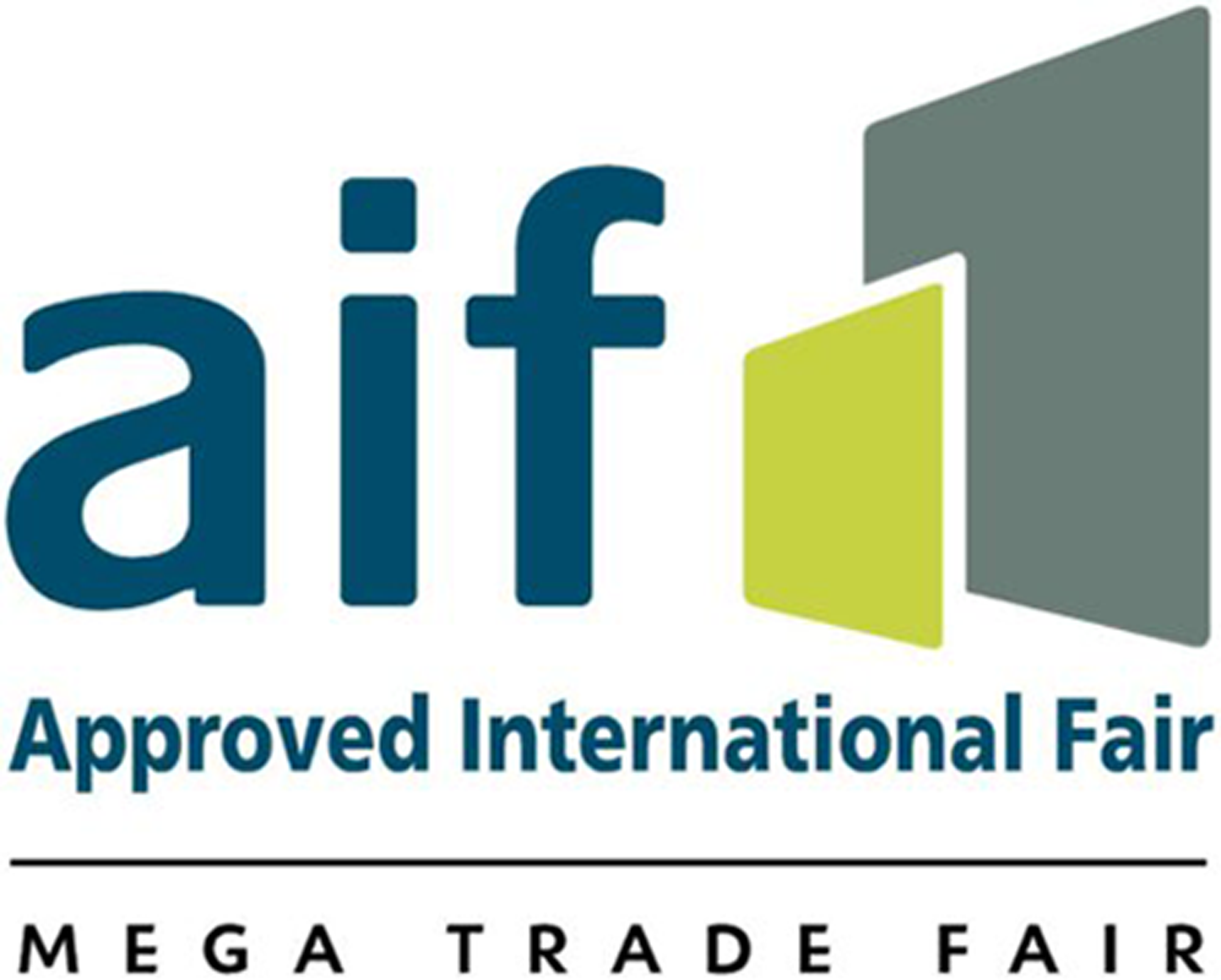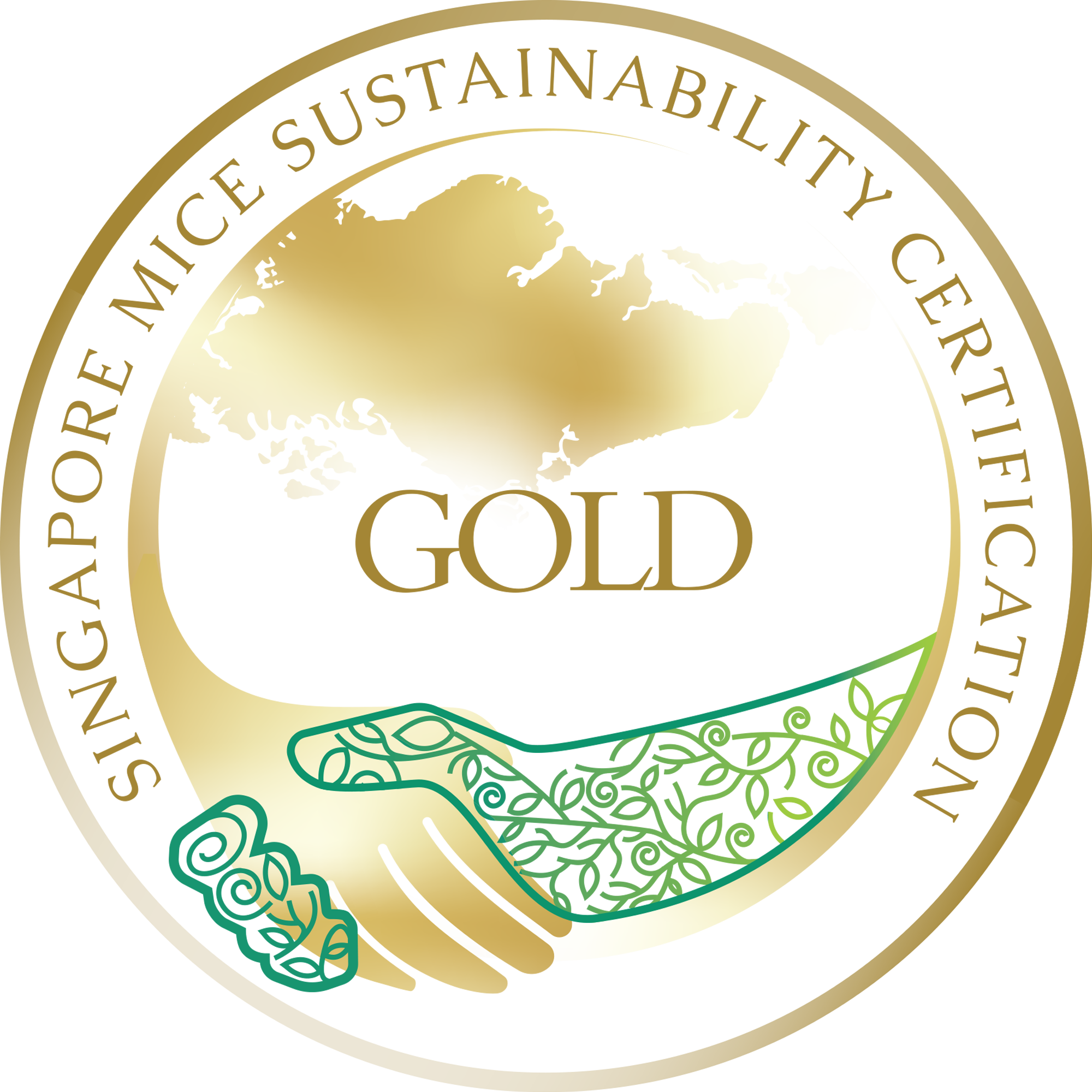In Singapore, the concept of upcycled food is gaining momentum as a sustainable solution to combat food waste.
But what is upcycled food exactly? It refers to products made from ingredients that would have otherwise been discarded, contributing to a more environmentally friendly food system.
Did you know that humans waste approximately 1.3 billion tons of food each year globally? Upcycled food offers a delicious and nutritious alternative by repurposing surplus ingredients.
By incorporating upcycled foods into our diets, we can significantly reduce this staggering amount of waste while enjoying tasty and eco-friendly meals.
What are Upcycled Foods?
Upcycled food products are innovative solutions to combat food waste problem by repurposing ingredients that would otherwise be discarded.
This sustainable approach involves transforming food by-products or surplus ingredients into new, value-added products, reducing environmental impact and promoting sustainability.
Unlike recycling, which breaks down materials into raw components, upcycling maintains the integrity of the original ingredients, creating higher-quality products.
The concept of upcycled food meaningfully contributes to reducing the staggering amount of food wasted globally each year. By adopting upcycled food products, consumers can play a crucial role in supporting a more sustainable food system while enjoying delicious and nutritious meals.
Furthermore, upcycled food products provide economic benefits by capturing the value of otherwise wasted resources and diverting them back into the market.
This can lead to the development of new markets and revenue streams for food producers, contributing to a more resilient and circular economy.
Examples of Upcycled Foods
Upcycled food means transforming food waste into new, innovative products, and it offers a sustainable solution to reduce waste. Here are some examples:
- Vegetable Chips: Crafted from peels and cores, these chips are not only delicious but also utilize parts of vegetables that would typically be discarded.
- Jams and Spreads: Made from “ugly” fruits, these jams and spreads are bursting with flavor while helping to reduce waste by repurposing imperfect produce.
- Nut Butters: These nutritious nut butters utilize leftover nut pulp and provide a tasty spread while minimizing waste in nut processing.
- Smoothie Mixes: Blending surplus fruits and vegetables into convenient frozen smoothie mixes not only reduces waste but also provides a convenient way to enjoy nutritious smoothies at home.
- Craft Beers: These beverages creatively incorporate spent bread grains, adding unique flavors and textures while repurposing a by-product of bread production.
These examples showcase the versatility of upcycling food waste into flavorful products, contributing to a more sustainable food system.
Understanding the Upcycled Certified Label
The Upcycled Certified Label, granted by the Upcycled Food Association, signifies that a product has met stringent criteria for upcycling food waste.
For producers and food manufacturers, this label indicates adherence to sustainable practices, including the use of surplus ingredients and value-added production.
Consumers benefit by quickly identifying products that contribute to reducing food waste while enjoying nutritious and innovative food options.
For instance, a vegetable chip bearing the Upcycled Certified Label assures consumers that it was crafted from vegetable peels and cores that would otherwise go to waste, promoting sustainability and environmental consciousness.
Benefits of Upcycled Foods
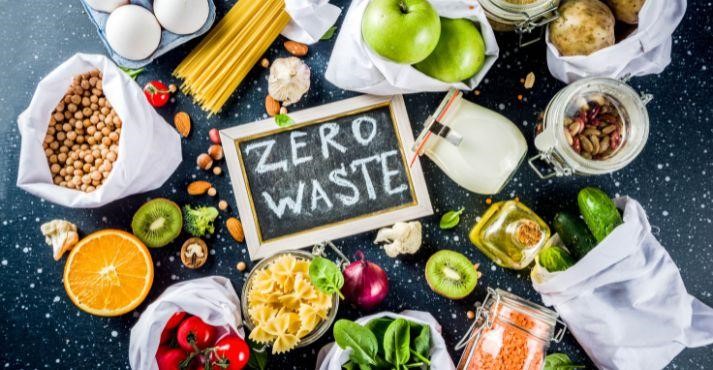
Upcycled foods are revolutionizing our view of food waste, offering a sustainable food solution to one of the most pressing challenges of our time.
Upcycled foods reduce waste and promote environmental sustainability by transforming by-products and surplus ingredients into delicious and nutritious products.
Let’s explore upcycled food’s benefits and significance in promoting a more sustainable future.
Reducing Food Waste
Upcycled foods play a vital role in curbing food waste by repurposing surplus ingredients and by-products that would otherwise end up in landfills.
Upcycled foods help minimize waste at every stage of the food supply chain by transforming overlooked resources into delicious products.
Sustainability and Resource Efficiency
Upcycled food products promote sustainability by maximizing the use of available resources and minimizing environmental impact.
Upcycled food production conserves valuable resources such as water, energy, and agricultural land by utilizing ingredients that might otherwise go to waste. This approach reduces the strain on ecosystems and contributes to a more efficient and sustainable food system.
Supporting Farmers and Producers
Upcycling food waste offers economic benefits to farmers and food producers by creating additional revenue streams for surplus or imperfect produce.
By incorporating these ingredients into value-added products, farmers can reduce losses and generate income while contributing to a more resilient and sustainable food system.
Nutritional Value
Upcycled foods often retain the nutritional value of their original ingredients, providing consumers with wholesome and nutrient-rich options.
By repurposing nutritious but underutilized ingredients, such as fruit and vegetable peels, upcycled foods offer a convenient way to incorporate essential vitamins, minerals, and dietary fiber into the diet.
Community Engagement and Social Impact
Upcycled food initiatives can forward community engagement and social impact by raising awareness about food waste issues and promoting sustainable consumption practices.
By supporting businesses that prioritize upcycling, consumers can actively contribute to reducing food waste and creating a more environmentally conscious society.
Potential for Innovation
Food waste upcycling not only minimizes waste but also stimulates culinary creativity and industry innovation. By repurposing food waste into new products, they inspire inventive culinary techniques, sustainable packaging solutions, and novel marketing strategies.
This nurtures a culture of innovation across the food sector, encouraging experimentation and the development of more sustainable practices throughout the supply chain.
Nutritional Value and Safety
When it comes to upcycled food products, ensuring nutritional value and safety is principal. While some may question the nutritional content of these innovative products, rigorous food quality control measures and adherence to regulatory standards ensure their safety and efficacy.
Upcycled food waste undergoes thorough testing to guarantee that it meets nutritional requirements and upholds food safety standards.
Additionally, upcycled foods often retain essential nutrients from their original ingredients, offering a nutritious alternative to traditional food options.
By prioritizing quality control and regulatory compliance, upcycled food producers not only ensure consumer safety but also contribute to addressing food security and sustainability challenges.
Successful Upcycled Food Startups
When it comes to eco-friendly eating, a bunch of new food startups are changing the game. These companies are all about turning leftovers into tasty treats while helping the planet. Let’s take a look at some upcycled food startups that are making a big difference!
1. TreeDots
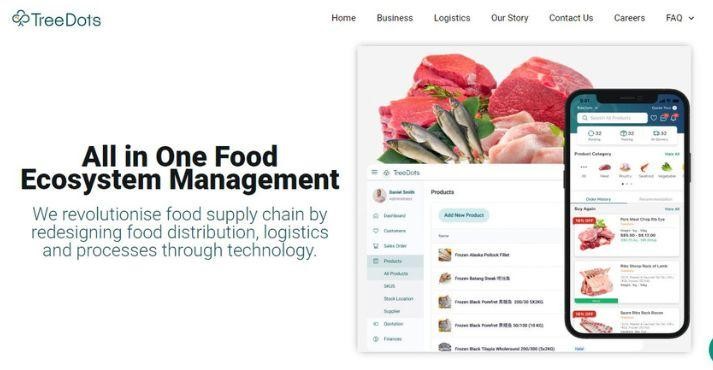
TreeDots, founded by Nicholas, JC, and Tylor, emerged from a creative solution to salvage avocados destined for waste. Recognizing inefficiencies in the food supply chain, they set out to tackle food loss. By connecting surplus food with demand, they aim to reduce waste.
Their mission is to save 2 million tons of food by 2025, curbing carbon emissions. Through innovative logistics and partnerships, TreeDots envisions a sustainable food future.
2. Matriark Foods
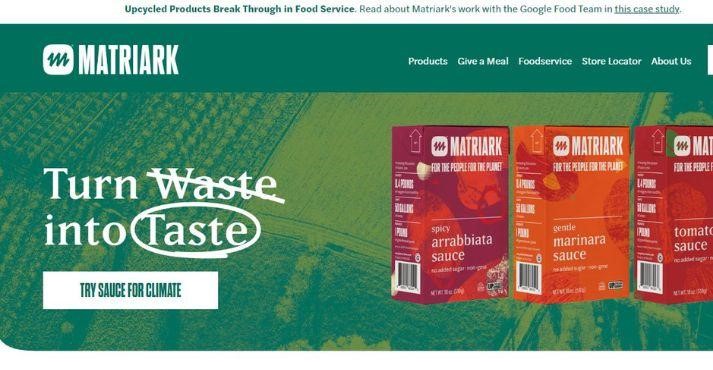
Matriark Foods pioneers upcycling in food service, transforming surplus vegetables into nutritious, low-sodium products. With a mission to combat food waste and promote sustainability, Matriark’s vegetable bases offer a flavorful solution for schools, hospitals, and food banks.
Led by Anna Hammond, CEO, the team leverages expertise in nonprofit leadership, culinary arts, and product development. Matriark is Upcycled Certified, ensuring its positive environmental impact.
3. The Ugly Co.

The Ugly Company, founded by Ben Moore, transforms imperfect fruit into delicious snacks. Ben’s journey began on his family farm, where he witnessed the waste of perfectly good produce. Inspired by his grandmother’s tradition of drying fruit, Ben created a brand that celebrates imperfection.
With colorful packaging and a positive message, Ugly fruit finds its way into stores like Whole Foods and Sprouts. Today, The Ugly Company operates from a state-of-the-art facility in Farmersville, California, proving that beauty lies in imperfection.
4. NETZRO
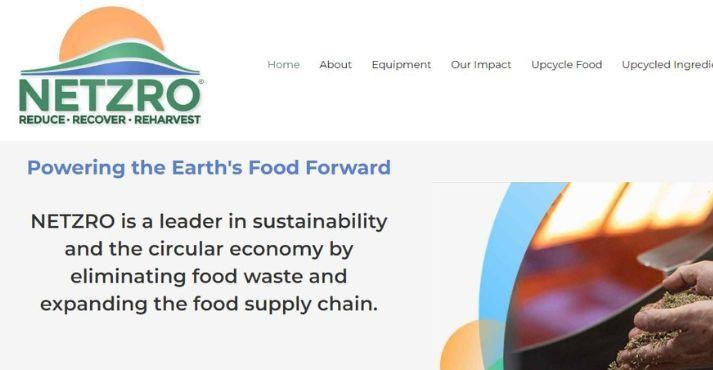
NETZRO is revolutionizing food upcycling with innovative technology and sustainable processes. By transforming unused food into valuable ingredients, they are tackling food waste and building a circular food economy.
Their platform reduces, recovers, and harvests food waste, offering scalable solutions for the upcycled food industry.
5. Rubies in the Rubble
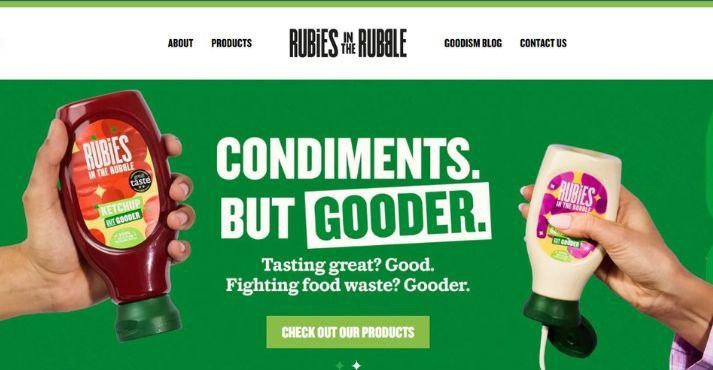
Rubies in the Rubble is combating food waste by creating delicious condiments from surplus ingredients. With millions of tons of food wasted annually, their mission is to rescue rejected produce and turn it into tasty ketchup, relishes, and mayos.
Rejects like curly cucumbers and overly ripe bananas find new life in their products, reducing waste and carbon emissions. Founded by Jenny, who grew up learning to be resourceful on a farm, Rubies in the Rubble has become a pioneer in food sustainability.
6. Sweet Benin, West Africa
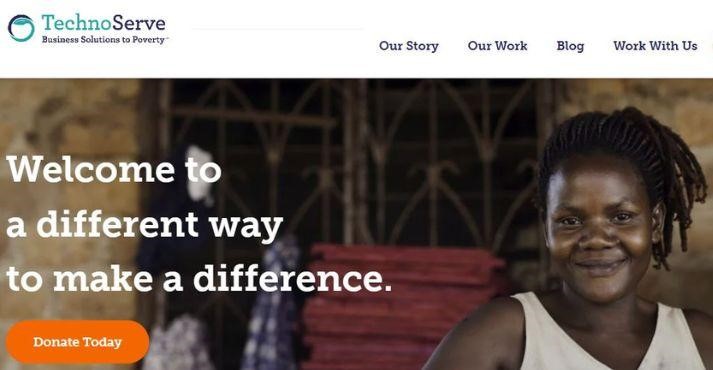
TechnoServe is helping turn waste from cashew harvests into a new beverage industry in Benin, Africa. Through the BeninCajù project, they’re boosting cashew processors’ production levels, creating jobs, and improving incomes for thousands of producers.
Sweet Benin, the country’s first cashew apple juice label, is a result of this initiative. By utilizing cashew by-products that were previously discarded, Sweet Benin is not only creating economic opportunities but also addressing hidden hunger by providing nutritious products.
7. Toast Brewing
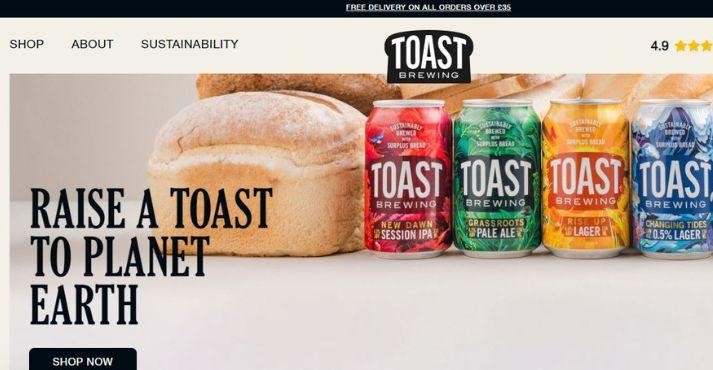
Toast Brewing creates a range of tasty, refreshing beers, each sip contributing to a sustainable cause. By rescuing surplus bakery bread, Toast Brewing infuses its brews with a unique flavor profile while tackling food waste.
Committed to environmental responsibility, they replace 25% of the malted barley in their beers with bread, using enzymes to convert starches into sugars for fermentation. Hops are skillfully added for aroma and preservation, resulting in delicious, eco-friendly brews.
What are upcycled foods (FAQs)
Are upcycled foods safe?
Yes, upcycled foods undergo rigorous quality control measures to ensure safety and adhere to regulatory standards, making them safe for consumption.
Where does upcycled food come from?
Upcycled food comes from utilizing food by-products or surplus ingredients that would otherwise go to waste, transforming them into new, value-added products.
What are upcycled fruits?
Upcycled fruits are fruits that may not meet traditional aesthetic standards but are still perfectly edible and nutritious. They are often used in upcycled food products to minimize food waste and offer sustainable food options.
Conclusion
In summary, when we explore what is upcycled food, we understand that it offers a transformative solution to address food waste and advance sustainability. By repurposing surplus ingredients into new, value-added products, upcycled foods redefine waste in our food system.
This approach not only minimizes waste but also encourages innovation and tackles environmental and food security challenges. Adopting upcycled food is essential for building a more efficient, resourceful, and resilient food system.
Together, we can incorporate the concept of upcycled food to create a more sustainable future for generations to come.

